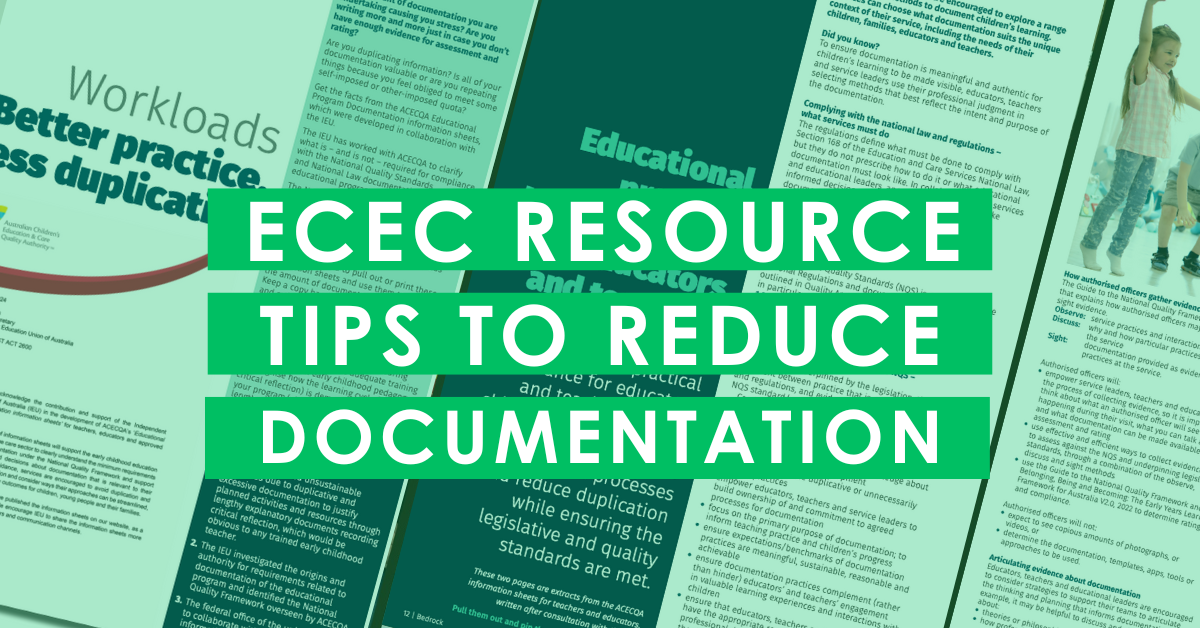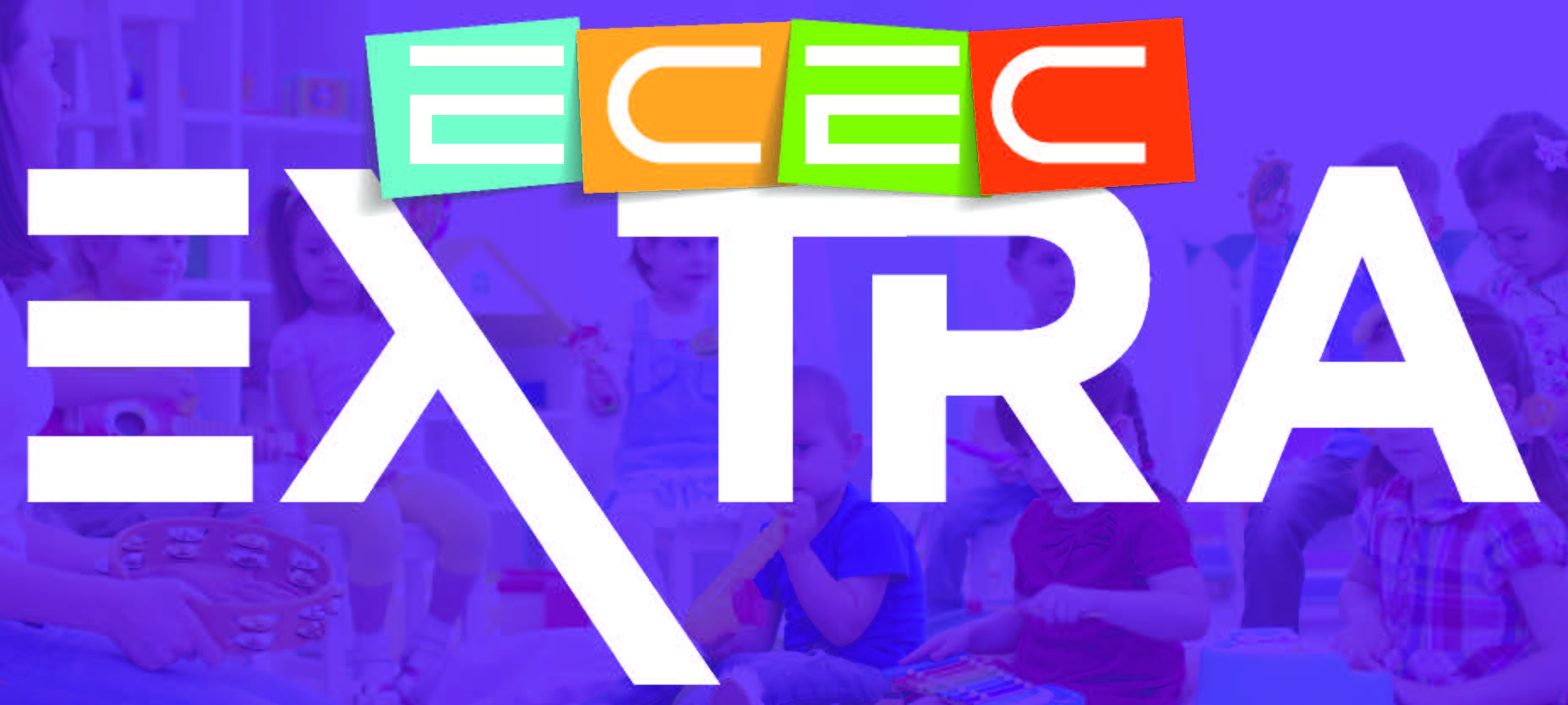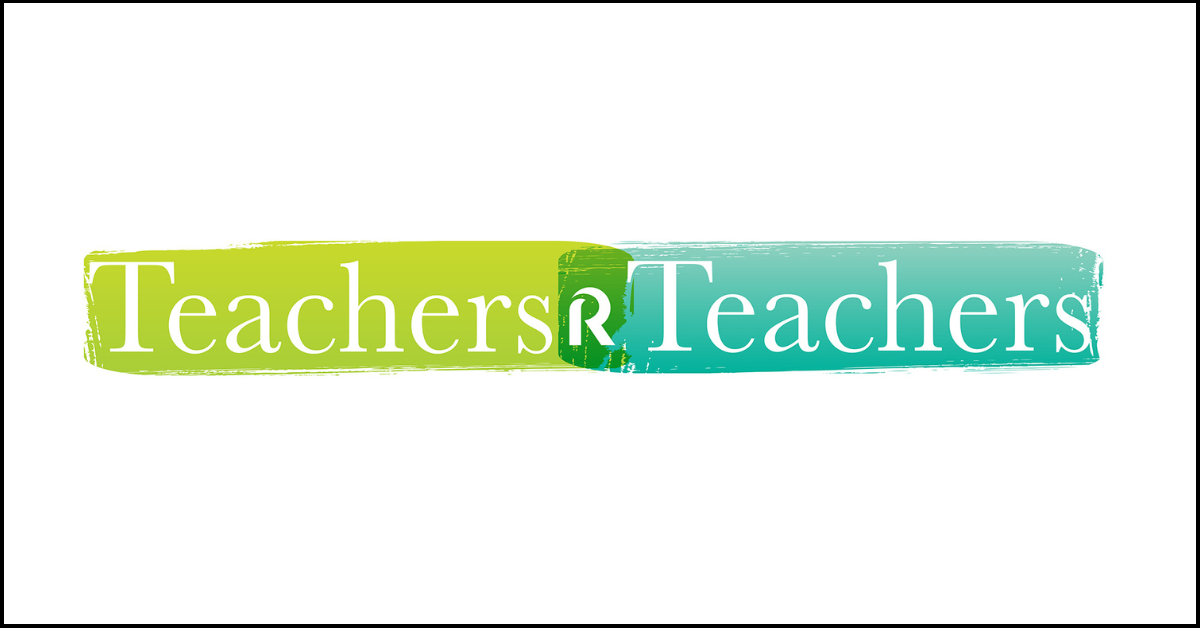The IEU welcomes the news that teachers in long day care centres across Australia will receive a 15% pay rise thanks to a much-needed $3.6 billion funding injection from the federal Labor government.
The historic announcement, made on 8 August, is a union win for members in long day care, whose work providing quality early childhood education and care services to children and parents is invaluable.
The 15% pay rise is above the current rate in the modern award, with a 10% increase in December 2024 and another 5% the following year.
Under the modern award, an experienced teacher in a long day care centre is currently paid $93,000 a year. The new top rate after the 15% increase will be more than $107,000.
Teachers who are already paid above the award will also gain increases that will be calculated on the award rate, not the over-award rate. For example, for a Level 2 ECT on the award rate (about $79,622 a year), the 10% pay increase is $7962. However, if the teacher is earning above the award, for example, $85,000 a year, they would receive an increase of 10% of the award rate ($7962) rather than 10% of their current salary.
As part of the pay rise, long day care centres will be required to limit fee increases to parents to 4.4% until August 2025.
The pay rise is a vital step towards closing the pay gap for the highly feminised ECEC sector.
Value of ECEC teachers
While announcing the pay rise, Prime Minister Anthony Albanese recognised the value of teachers in the sector.
“Early educators shape lives and change lives,” Albanese said in a media statement.
“We can never thank them enough for what they do, but we can make sure they are properly valued and fairly paid. Today our government is doing just that.”
Dr Anne Aly, the Minister for Early Childhood Education, also honoured the work of ECEC teachers during question time on 15 August. Despite the importance of teachers in the sector, their work has gone undervalued, she said.
“That’s why our historic announcement of a 15% pay increase across the early childhood education sector is incredibly important,” said Aly.
“This pay rise means that by the end of this year early childhood educators – around 200,000 of them right across Australia – will get at least an extra $100 in their pay packets.”
Federal Education Minister Jason Clare said, “The childcare debate is over. It’s not babysitting. It’s early education and it’s critical to preparing children for school”.
“They lift our kids up and now we are lifting their pay,” Clare said.
Aly joined the IEU for a roundtable in late 2022, during which members shared heartfelt stories with her about how low wages, intense workloads and workforce shortages were impacting their lives.
Sector-wide success
“This is an historic outcome of unions, the federal government and a group of 64 employers working together to lift pay and conditions across the long day care sector,” said IEUA NSW/ACT Branch Secretary Carol Matthews.
The pay increases, to be funded by the federal government, will help ease critical teacher shortages in long day care centres across the country. Early childhood teachers have been leaving in droves to take up roles in schools and other sectors where the salaries and conditions are substantially better.
For IEU member and long day care centre teacher Amy Martin, the news is a welcome relief.
“The recent announcement about the Australian Government finally acknowledging the need to fund a pay increase for early childhood educators and teachers is incredible,” said Amy.
“A decent increase is definitely welcome and needed to be able to keep up with the cost of living, especially living in Sydney. Our hard work and dedication is finally being recognised as being underpaid and we can’t wait to see how this will be rolled out. We hope that every organisation gets on board with the requirements for the government to fund it.”
Next steps
The IEU is currently discussing with the federal government how the funding will be distributed and the mechanisms to ensure the full increase in funding is passed on to teachers and educators as pay rises.
It is expected this will occur through the proposed new enterprise agreement which will include the pay increases and some other minor improvements to conditions, for example, around professional development, as well as support for provisionally accredited teachers.
“We’re pleased with the government’s cap of 4.4% on fee rises in the next 12 months, but we want to make sure that the funding increase is actually passed on to teachers and educators,” Matthews told SBS News.
“I’m sure that that’s the government’s intention. We understand that will be done through an enterprise agreement, which the unions have been seeking, and we think that’ll be the mechanism for ensuring that the pay rises do go to the employees.”
The IEU joined with the United Workers Union and the Australian Education Union to access the supported bargaining stream in new industrial relations laws passed as part of the Secure Jobs Better Pay Act in 2022.
The provision enables unions to bargain for enterprise agreements with groups of employers in a sector rather than in individual enterprises. The laws aim to address the long-term failure to properly value work in feminised sectors such as early childhood education and care.
On August 26-28, unions and employers met at the Fair Work Commission in Melbourne to work towards finalising the agreement.
Parties involved in the proceedings included the IEU, United Workers Union, Australian Education Union, Community Early Learning Australia, Australian Childcare Alliance and G8 Education.
Strong start but more to do
While the union welcomes the pay rise announcement, “more work still needs to be done”, Matthews said.
“The gap in pay and conditions between teachers in the early childhood sector and those in schools is still too big. Teachers are teachers no matter the age of their students, and we will keep fighting until there is equity between teachers in the early childhood education and care sector and those in schools.”
This update is part of the September 2024 EXEC Extra enewsletter (formerly known as Teachers R Teachers). ECEC Extra is distributed to early childhood teachers, long day care centres and preschools three times per year. You can read past editions of ECEC Extra on our enews homepage or stay across all our updates for early childhood teachers on our ECEC page or via our Facebook community group for members only.



